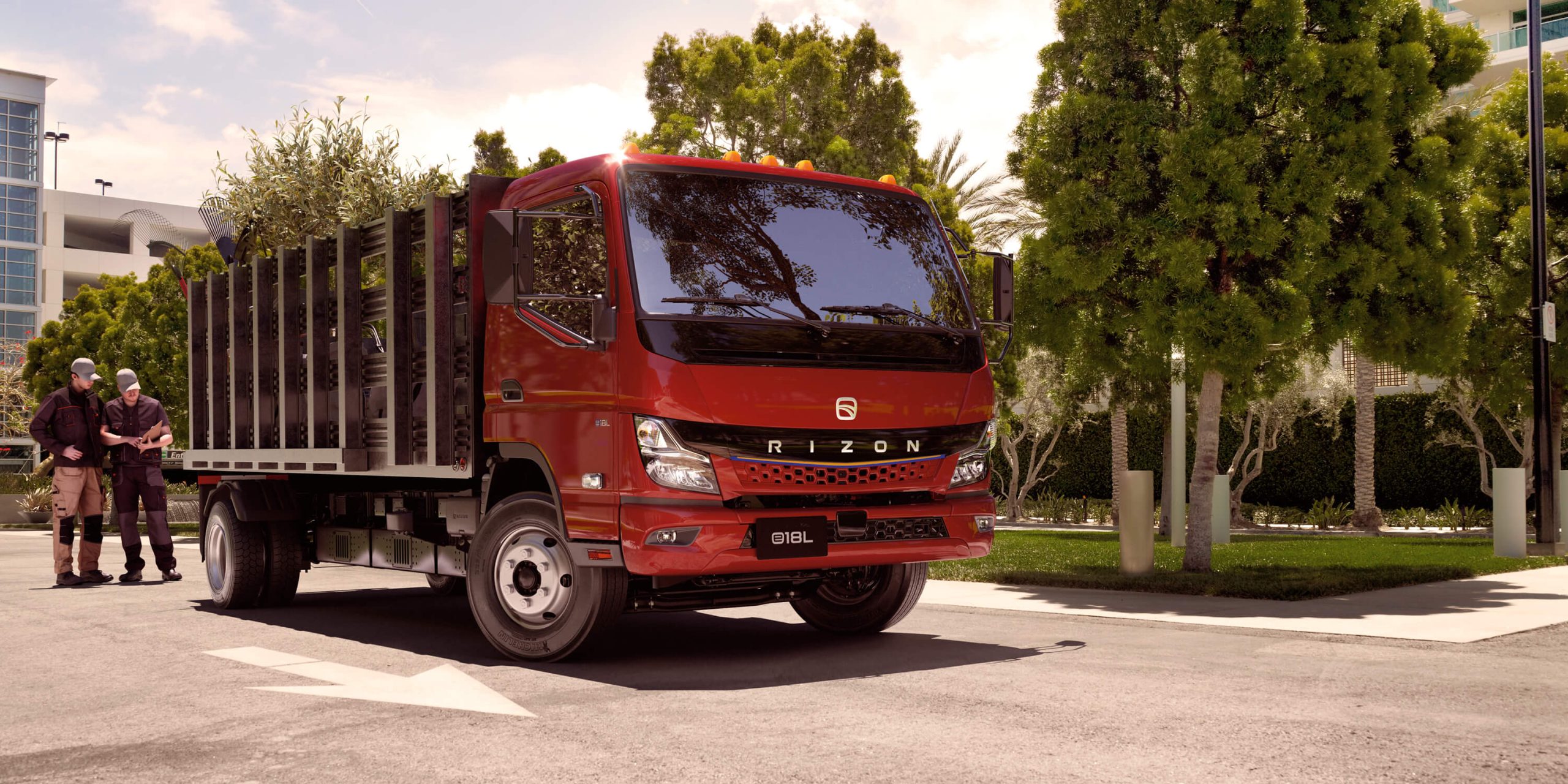Contact us
To learn more about RIZON trucks specs, product details or to contact our distributors, please email us at rizonsales@daimlertruck.com
Sorry. We did not find anything.
About
RIZON is a commercial electric truck brand developed and manufactured by the Daimler Truck Group, a global leader in the transportation industry. Our fully electric medium-duty trucks are designed on customer feedback for practical real-world business needs. Developed and built in-house from the ground up, RIZON is setting a new standard in Class 4-5 commercial electric vehicles.
Our proven knowledge of the commercial electric vehicle marketplace can help you navigate the integration of eMobility solutions into your business operations. The RIZON dealer network offers a comprehensive suite of services including eConsulting guidance, infrastructure planning, fleet management systems integration, battery life-cycle management and end-of-life disposition.
To learn more about RIZON trucks specs, product details or to contact our distributors, please email us at rizonsales@daimlertruck.com
